Space
Sign up for our newsletter
We summarize the week's scientific breakthroughs every Thursday.
-
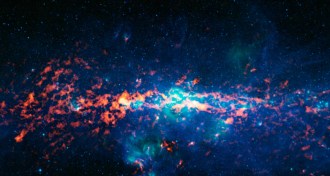 Chemistry
ChemistryInterstellar chemical resembles building blocks of life
A molecule detected in the space between stars resembles amino acids, suggesting those building blocks of life share a similar origin.
By Beth Mole -
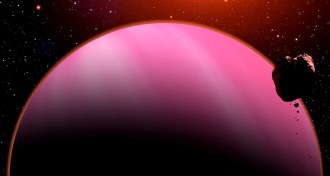 Astronomy
AstronomyWater found on Neptune-sized world
Just four times as wide as Earth, HAT-P-11b is the smallest exoplanet known to store water in its atmosphere.
-
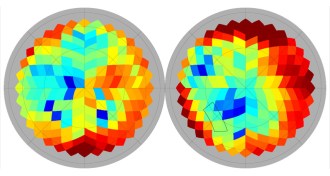 Cosmology
CosmologyGravitational wave discovery gives way to Milky Way dust
New polarization maps from the Planck satellite suggest that the BICEP2 announcement this year of primordial gravitational waves might be due entirely to dust in our galaxy.
-
 Planetary Science
Planetary ScienceMAVEN spacecraft set to explore Martian atmosphere
The Mars Atmosphere and Volatile Evolution, or MAVEN, spacecraft entered into orbit around the Red Planet on September 21.
-
 Planetary Science
Planetary ScienceFeedback
Readers discuss sources of stress in everyday life and tell us what they think about NASA's plan to nab an asteroid.
-
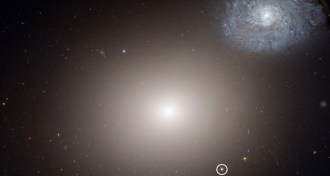 Astronomy
AstronomyEnormous black hole resides at core of tiny galaxy
A small galaxy stores 15 percent of its mass in a black hole, suggesting compact galaxies might be shreds of once larger galaxies.
-
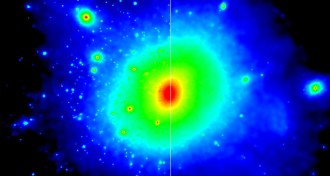 Astronomy
AstronomyTweak to dark matter may explain Milky Way mystery
Dark matter weakly interacting with light in the early universe might have prevented satellite galaxies from forming around Milky Way, astronomers propose.
-
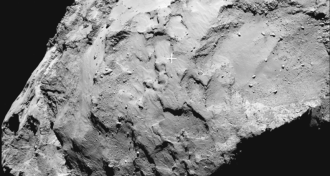 Planetary Science
Planetary ScienceSpot on comet chosen for Rosetta mission lander
Philae, the Rosetta mission lander, will attempt to land on a spot called site J on comet 67P/Churyumov–Gerasimenko.
-
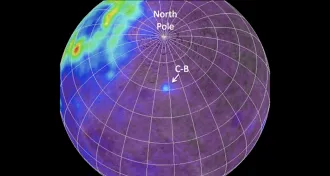 Planetary Science
Planetary ScienceMoon’s farside hints at violent volcanic explosions
The spread of the element thorium in the moon's Compton-Belkovich region suggests that silica volcanoes there once had violent explosions.
-
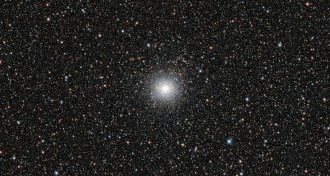 Astronomy
AstronomyMystery of missing lithium extends beyond Milky Way
Stars in cluster Messier 54, part of a nearby dwarf galaxy, have just as little lithium as stars in the Milky Way, suggesting that the mystery of the missing element is universal.
-
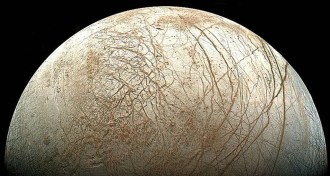 Planetary Science
Planetary SciencePlate tectonics spotted on Europa
First evidence for plate tectonics elsewhere in solar system discovered on Jupiter’s icy moon Europa.
-
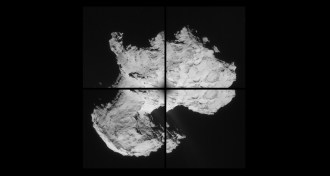 Astronomy
AstronomyRosetta’s comet shows few signs of surface ice
The first data sent back from one instrument aboard the Rosetta spacecraft suggests that comet 67P/Churyumov-Gerasimenko has little surface ice.